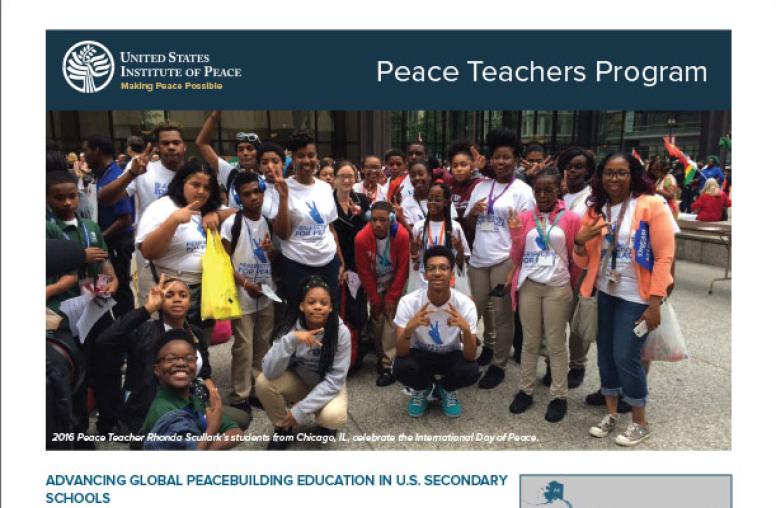When Indian River State College identified a lack of adequate training among humanitarian aid and peace operations practitioners, the United States Institute of Peace (USIP) offered grant funding to a project that develops sustainable simulation platforms to conduct peace and humanitarian operations training.

Indian River State College made a compelling case that the humanitarian aid community as a whole lacked sufficient capacity to train field managers who can operate effectively in crisis situations, and that the demand for leaders of humanitarian operations is increasing as environmental change, as well as political instability, creates the need for more relief, reconstruction and stabilization efforts by governmental agencies and NGOs. As a result of this lack of training, humanitarian operations workers can sometimes be unprepared to dealing with the variety of complex emergencies they might face in the field.
With USIP support, Indian River State College was able to help the Consortium for Humanitarian Service and Education (CHSE) strengthen its capacity to conduct training-of-trainers programs for humanitarian aid and peace operations practitioners. CHSE—whose members include Indian River State College, Northwest Missouri State University, the Macedonian Institute of Peace and Defense Studies, Ministry of Defense of the Republic of Macedonia, North Oklahoma College, the Citadel Military College of South Carolina, University of Florida, West Point and Salve Regina University—works with students and practitioners of international humanitarian response to provide hands on and field-relevant experience leading humanitarian operations.
CHSE conducts a field training session—Field Training Exercise Atlantic Hope—that focuses on humanitarian aid and peace operations preparedness for students and practitioners from a vast array of backgrounds and disciplines. Atlantic Hope is a four day long exercise that, according to CHSE, “test[s] the ability of disaster relief and humanitarian studies participants to apply what they have learned about the planning and conduct of relief missions in a full-scale simulated disaster environment.” Atlantic Hope was held twice in 2014: from March 6-9 for undergraduates and March 13-16 for graduate students and practitioners.
Practitioners who take part in Atlantic Hope simulate a response to a complex humanitarian emergency (i.e. an earthquake or war) in a fictional country called Atlantica. Participants role-play as members of a humanitarian relief agency called International Humanitarian Action (IHA). Participants are exposed to “in-country” briefings by humanitarian response experts and participate in a series of team building and technical courses during the activity. Trainees are taught to face the real challenges and conditions faced by humanitarian aid and peace practitioners.
In order to revamp and strengthen CHSE’s training curriculum, a 16-day workshop reviewed lessons learned from previous trainings held in Macedonia over the preceding three-year period. Curriculum revisions based on the lessons from Macedonia were tested to ensure effectiveness. After the incorporation of the Macedonia materials, workshops were between CHSE staff, consultants from the Humanitarian Training Initiative (at McGill University), Harvard University and staff from Macedonia and Haiti. These workshops led to the development of a field-training guide that helps guide academic content for future training programs. The CHSE plans to host annual workshops in Macedonia and Florida.
Training materials include information regarding medical and public health responses to humanitarian crises, challenges presented by improvised explosive devices and anti-personnel mines and content regarding treatment of child soldiers under international humanitarian law.
On account of this grant, the size of the CHSE nearly doubled (including the following universities having joined or planning to join: George Mason University, Kennesaw State University, American University and the University of North Carolina-Greensboro) and a revised handbook on humanitarian operations was produced and adopted as a textbook by CHSE members. Some training resources are available electronically at the CHSE’s website.



